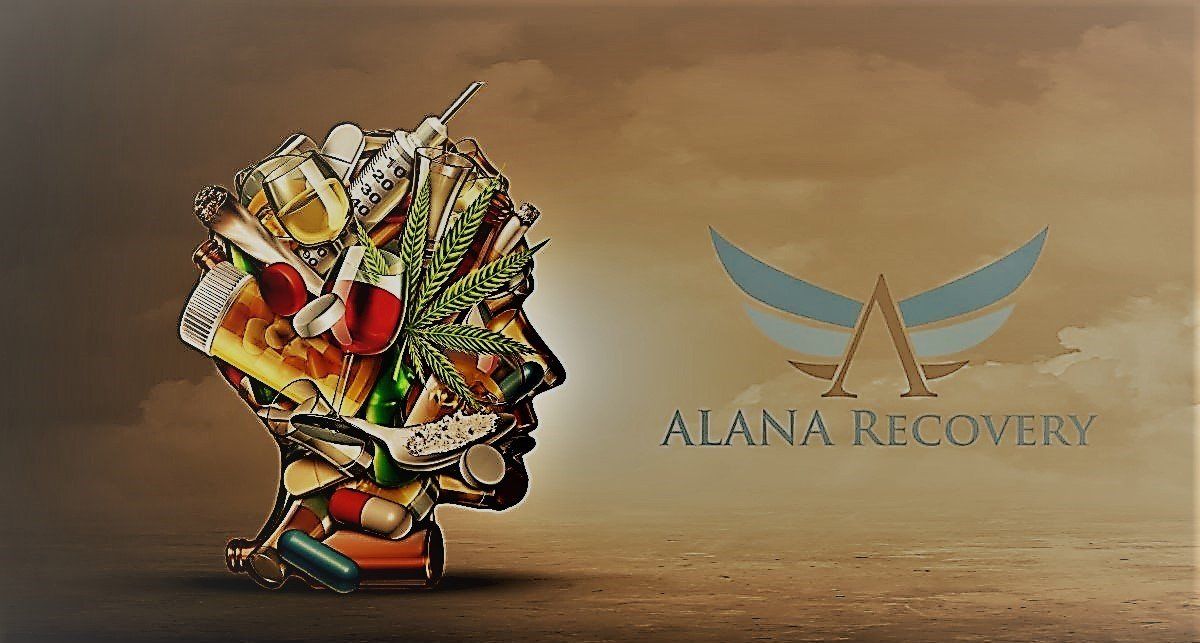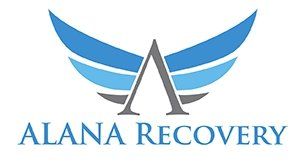Substance Abuse Recovery Starts With Honesty

Before searching for an intensive outpatient program for substance abuse near you, you want to be sure your loved one needs such treatment. However, potential addicts may deny the extent of their substance usage. Their constant use may be worse than it already is without them knowing, making immediate intervention necessary.
Consider subtly bringing up the subject of drug abuse with a loved one you suspect of addiction. Naturally, they will deny their addiction and insist they are okay. Alternatively, you may look for drug abuse signs such as alcoholism or fentanyl addiction symptoms in a person if they continue denying their condition. Here are a few ways to tell when a drug addict is lying.
A Person Uses Prepared Speeches
An addict tends to avoid speaking casually and resorts to more specific speech patterns when they lie. They must have thought about the possibility of people asking them about using substances such as drugs or alcohol, so they prepared retorts to the questions they expected.
Watch out for specific details that a person may say that give away their drug use habit. For instance, a person may get defensive when you ask them if they are doing drugs and say, “I am not using drugs.” If they usually do not speak that formally, they may be using drugs.
A Person Omits or Adds Details to Their Story
Some people may try to avoid lying altogether. They could omit details in their stories or explanations when you ask them about what they may have been doing. You want to listen for what a person is not saying instead of what they are saying. An addict may be lying if they hide details, especially if you have an established relationship where they tell you everything.
Relatedly, a liar may add extra details to their stories to the point of becoming convoluted. Suppose your loved one is taking prescription drugs and you ask about their dosage. They end up asking for more drugs because they already used up their supply. When you ask them about it, they may talk extensively to hide the fact they are abusing their prescription.
Listen to a person’s story and determine whether it lines up with everything you know about them and their prescription. If you suspect abuse, you may need professional intervention services to prevent your loved one’s addiction from worsening.

Look for Symptoms of Drug Abuse
Concerned family members can pay attention to their loved one’s behavior to see if they are lying about their substance abuse. While a person may say they are not using any substances, their actions may give them away.
Addiction is the most severe form of a substance use disorder (SUD), which develops from continued misuse of any substance. Consider the following common substances associated with abuse and watch out for matching symptoms in a loved one you may suspect is addicted.
Alcohol Addiction Symptoms
Drinking problems range between mild and severe. However, alcoholism may lead to serious issues regardless of its abuse level. This potential for harm on a person makes an alcohol intensive outpatient program necessary as early as possible. Look for the following alcohol abuse symptoms in a loved one who constantly drinks liquor to determine if they are addicted:
- Impaired Attention: An addict’s attention span and coordination weaken with constant alcohol intake. A loved one may be addicted to alcohol when they have trouble remembering simple details in a conversation.
- Poor Coordination: Watch out for slurred speech and poor muscle coordination in a person who constantly drinks. This behavior may occur even in the daytime when responsible people avoid drinking.
- Reduced Sociability: Alcohol addicts tend to reduce or outright give up a lot of social activities and hobbies. A loved one suddenly becoming a recluse may be a sign of addiction because of shame and wanting to avoid lying deliberately.
- Sleep Problems: Alcohol addicts may have trouble sleeping as a withdrawal symptom. This occurs when a person has been
drinking alcohol heavily and then stops abruptly, which may give away the fact they have been drinking more than usual.
Cocaine Addiction Symptoms
People may use cocaine by inhaling the powdery substance, injecting a dissolved version into their bloodstream, or smoking crystal rock forms. Regardless of intake method, cocaine leaves lasting effects on the user and gives away that they are using such substances.
- Nosebleeds: Inhaling cocaine damages the blood vessels in the nose, causing nasal issues such as loss of smell and nosebleeds.
- Respiratory Issues: Smoking crack cocaine leaves people coughing and wheezing. A person may be smoking cocaine if they exhibit asthmatic behavior without a history of the condition.
- Track Marks: Addicts may have scars after injecting cocaine into their veins. They may also hide these scars by using long-sleeved garments.
- Dilated Pupils: A common physical indication of cocaine addiction is pupil dilation. This noticeable sign of cocaine abuse should prompt concerned individuals to seek intervention measures as soon as possible.
Marijuana Addiction Symptoms
Many marijuana users report various forms of physical discomfort, which may indicate withdrawal symptoms among people with a marijuana use disorder. A person may also deny their dependence on this drug, so it may be wise to look out for a marijuana addiction’s physical symptoms among the withdrawal symptoms.
- Bloodshot Eyes: The most common physical symptom of marijuana use is red eyes due to blood vessel expansion, causing more blood to fill up the eyes.
- Irritability: People who abuse marijuana may be more prone to anger or aggression at the slightest inconvenience.
- Weight Gain or Loss:
Marijuana addicts may exhibit an increased appetite leading to unexpected weight gain. At the same time, marijuana withdrawal symptoms may lead to a decreased appetite and sudden weight loss.
Methamphetamine Addiction Symptoms
Meth users chase after the drug’s pleasurable effects. These people develop substance addiction when their bodies start tolerating methamphetamines, leading them to take higher drug doses to achieve their desired effect. Addicts may display the following symptoms of methamphetamine addiction:
- Mood Disturbances: Meth addicts may experience psychotic symptoms because the drug is a psychostimulant. A person may be abusing methamphetamines when they exhibit paranoia and delusions such as the feeling of insects under their skin.
- Insomnia: Like alcoholics, prescription meth addicts may experience sleep problems when going through withdrawal. Addicts may find difficulty falling asleep at night or wake up frequently when trying to sleep. In this case, you may notice signs of sleep deprivation in a loved one such as reduced attention span or dark circles around their eyes.
- Violent Behavior:
Meth addicts may display aggressive or violent behavior due to the drug’s ability to reduce a person’s emotional stability.
Prescription Opioid Addiction Symptoms
Concerned individuals should watch out for withdrawal symptoms that manifest in patients who develop an SUD from prescription opioids. These withdrawal symptoms occur when an addict stops using prescription drugs.
Common prescription drugs that people may get addicted to include morphine and fentanyl. Users can only obtain these drugs when they get a doctor’s prescription to control their intake. However, these drugs still provide intense pain-relieving and euphoric effects that users crave once they start using them.
Eventually, they may turn to illegal opioids such as heroin because they are cheaper and more accessible ways to achieve pain relief and euphoria. Thus, their addiction worsens as they continue ingesting these substances, and they go through withdrawal if they stop using.
A person who exhibits the following unpleasant symptoms may have a prescription opioid addiction:
- Cold Flashes: An addict going through withdrawal may develop goosebumps and get cold flashes despite favorable weather. Some addicts may turn to wearing winter gear to counter their cold flashes.
- Constant Headaches: Common fentanyl addiction symptoms include migraines, headaches, and dizziness. A person may be abusing prescription opioid drugs or a mixture of such substances with street-sold drugs to amplify the effects they receive from these pain killers.
- Gastrointestinal Issues: Addicts going through withdrawal may experience uncomfortable stomach pains, diarrhea, vomiting, and gastrointestinal spasms. Look out for a loved one you suspect of being addicted to their prescription drugs and see if they make frequent visits to the bathroom due to these stomach problems.
- Muscle Cramps and Bone Pain: These pains are the most common opioid addiction withdrawal symptoms. In addition, most addicts use muscle cramps and joint pains as their primary reason for avoiding rehab because they want to avoid the pain that comes when they start to detox.
- Severe Cravings: People who have developed an opioid dependence may begin craving such substances more severely once they stop. Addicted individuals may lie further by manipulating their loved ones to obtain more of their prescription opioids to satisfy their cravings.
- Uncontrollable Leg Movements: Addicts may experience restless leg syndrome as a withdrawal symptom from using fentanyl,
heroin, methadone, or tramadol opioids. An addict is most likely lying about their condition if you notice their involuntary leg movements all while knowing they take prescription drugs.

Will You Be Able To Tell When a Drug Addict Is Lying?
A drug addict is probably lying about their habits if your gut tells you something is wrong. People are most likely going to lie to themselves and their loved ones about being addicted to substances.
You can look for symptoms that are common among addicts of all sorts of substances. Drug addicts exhibit behavioral changes that may indicate their substance abuse. Pay attention to your loved one’s behavior and determine whether they have become less sociable than you remember them to be, which may be the beginning stages of addiction.
Consider
seeking professional medical assistance as soon as you identify any sign of addiction. Substance use disorders that develop into addiction may be life-threatening, making early treatment important for anyone on drugs, whether or not they are prescribed substances.
Talk With a Provider Today!
Talk With a Provider Today!
Fighting addiction alone is an almost impossible task. Don't do this alone, call us today to start your road to recovery.




